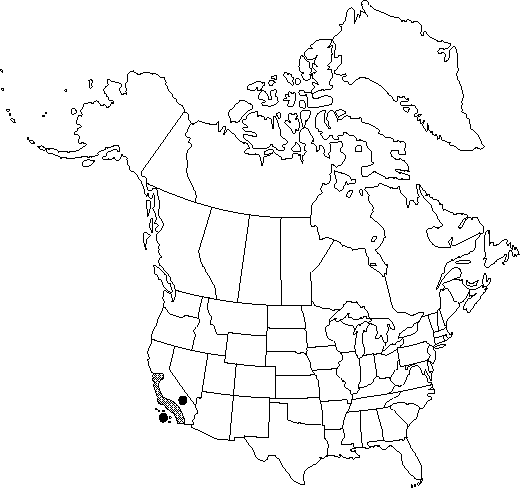Difference between revisions of "Parietaria hespera var. californica"
Sida 3: 295. 1969.
Treatment appears in FNA Volume 3.
FNA>Volume Importer |
imported>Volume Importer |
||
| Line 46: | Line 46: | ||
|publication year=1969 | |publication year=1969 | ||
|special status= | |special status= | ||
| − | |source xml=https:// | + | |source xml=https://bibilujan@bitbucket.org/aafc-mbb/fna-data-curation.git/src/bb6b7e3a7de7d3b7888a1ad48c7fd8f5c722d8d6/coarse_grained_fna_xml/V3/V3_213.xml |
|genus=Parietaria | |genus=Parietaria | ||
|species=Parietaria hespera | |species=Parietaria hespera | ||
Revision as of 22:59, 27 May 2020
Herbs, 0.2-4 dm. Leaf blades oblong, broadly ovate to orbiculate or reniform, 0.2-1.7 × 0.2-1.2 cm, as long as or slightly longer than wide, base rounded to nearly cordate, apex distally short-acuminate to obtuse or rounded. Flowers: involucral bracts 1.2-3.2 mm; tepals spreading or recurved and twisted at maturity, distinct, ca. 2-2.7 mm, apex long-acuminate, attenuate, or caudate.
Phenology: Flowering spring.
Habitat: Moist, often shaded, sandy or rocky places
Elevation: 0-1200 m
Distribution

Calif., Mexico (Baja California).
Discussion
The two varieties of Parietaria hespera are generally distinct, but intermediates occur. Both are found in California and have been collected in Los Angeles and Monterey counties and on Santa Barbara Island.
Selected References
None.
Lower Taxa
None.